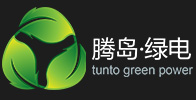solar panels perfect case of protectionism costing more jobs than it saves
by:Tunto
2020-03-15
The International Trade Commission ruled Friday that solar panels imported from China and other countries injured the United States. S.
Manufacturers will provide President Trump with the opportunity to impose tariffs to protect US solar panel producers from such \"unfair\" foreign competition.
However, in order to protect the work of Americans producing solar panels, the president must jeopardize the work of more Americans: those who install solar panels in our homes and businesses.
Solar panels are therefore a perfect example of the dilemma inherent in the fight against free trade.
Justin Wallan reported in time that solar panel manufacturers employ about 8,000 Americans, compared with another 240,000. S.
Work is related to the sale and installation of solar panels.
Companies involved in this business oppose any tariffs, as more expensive solar panels may mean fewer people want to install solar panels.
In fact, the industry has warned that 88,000 jobs will be at risk if action is taken to save 8,000 jobs in the United States that make solar panelsS.
This situation of saving some work at the expense of other work is not uncommon, but rather the standard in international trade disputes.
American timber producers complain that Canadian timber imports are cheap, but Home Depot, Lloyd\'s and construction are all getting jobs from cheap wood.
President George W.
Bush provides protection to the United States. S.
Steel producers, but the cost could be $200,000. S.
Jobs in steel consumption industries such as automobile manufacturing.
This trade-off within the United StatesS.
The economy is inevitable.
A tax on imported products means that the consumer price of these products is higher, whether these imported products are used as inputs to manufacture other products or for direct consumption.
Rising consumer prices mean less sales.
The reduction in sales means that producers and retailers have lost their jobs and their business costs have suddenly risen.
In addition, even consumers who still buy imported or imported goods --
Include products to pay more for them and leave less money for other purchases.
This means that more unemployed people are scattered across the United States. S. economy.
Nothing in life is free
The same is true of famous economic celebrities.
Of course, imposing tariffs on imported goods can help American companies that compete with these importers save some jobs.
However, saving these jobs is not free, but at the expense of higher prices for so-called jobs that could lead to more jobs --saving tariffs. While U. S.
Trade law allows the president to protect industries facing economic harm from imports of unfair subsidies, which also provides the president with broad freedom to take any action.
The work of the International Trade Commission is to determine whether domestic industries are victims of unfair trade practices, rather than finding what is best for the national economy as a whole;
This is the job of the president.
So while President Trump may be inclined to provide protection for US solar panel producers, some of his advisers may suggest that he will allow free trade to continue if he really cares about the work of American workers.
Some solar panel manufacturers may easily see a concentrated job at risk, but, as with most trade disputes, more jobs are at risk in the rest of the economy.
Yes, there are winners and losers in free trade, but at least in free trade, there are more winners than losers.
Protectionism usually loses more jobs to our economy.
This does not seem to be a successful economic policy.
Manufacturers will provide President Trump with the opportunity to impose tariffs to protect US solar panel producers from such \"unfair\" foreign competition.
However, in order to protect the work of Americans producing solar panels, the president must jeopardize the work of more Americans: those who install solar panels in our homes and businesses.
Solar panels are therefore a perfect example of the dilemma inherent in the fight against free trade.
Justin Wallan reported in time that solar panel manufacturers employ about 8,000 Americans, compared with another 240,000. S.
Work is related to the sale and installation of solar panels.
Companies involved in this business oppose any tariffs, as more expensive solar panels may mean fewer people want to install solar panels.
In fact, the industry has warned that 88,000 jobs will be at risk if action is taken to save 8,000 jobs in the United States that make solar panelsS.
This situation of saving some work at the expense of other work is not uncommon, but rather the standard in international trade disputes.
American timber producers complain that Canadian timber imports are cheap, but Home Depot, Lloyd\'s and construction are all getting jobs from cheap wood.
President George W.
Bush provides protection to the United States. S.
Steel producers, but the cost could be $200,000. S.
Jobs in steel consumption industries such as automobile manufacturing.
This trade-off within the United StatesS.
The economy is inevitable.
A tax on imported products means that the consumer price of these products is higher, whether these imported products are used as inputs to manufacture other products or for direct consumption.
Rising consumer prices mean less sales.
The reduction in sales means that producers and retailers have lost their jobs and their business costs have suddenly risen.
In addition, even consumers who still buy imported or imported goods --
Include products to pay more for them and leave less money for other purchases.
This means that more unemployed people are scattered across the United States. S. economy.
Nothing in life is free
The same is true of famous economic celebrities.
Of course, imposing tariffs on imported goods can help American companies that compete with these importers save some jobs.
However, saving these jobs is not free, but at the expense of higher prices for so-called jobs that could lead to more jobs --saving tariffs. While U. S.
Trade law allows the president to protect industries facing economic harm from imports of unfair subsidies, which also provides the president with broad freedom to take any action.
The work of the International Trade Commission is to determine whether domestic industries are victims of unfair trade practices, rather than finding what is best for the national economy as a whole;
This is the job of the president.
So while President Trump may be inclined to provide protection for US solar panel producers, some of his advisers may suggest that he will allow free trade to continue if he really cares about the work of American workers.
Some solar panel manufacturers may easily see a concentrated job at risk, but, as with most trade disputes, more jobs are at risk in the rest of the economy.
Yes, there are winners and losers in free trade, but at least in free trade, there are more winners than losers.
Protectionism usually loses more jobs to our economy.
This does not seem to be a successful economic policy.
Custom message
 miko@tunto.cn
miko@tunto.cn






